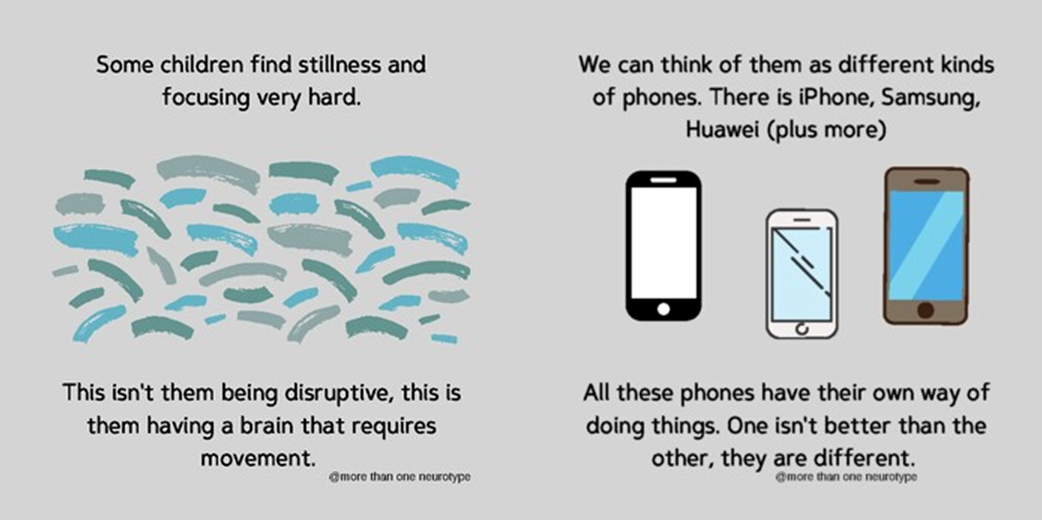
Home / Latest News /
This week, our Bethany School blog has been written by Mrs Harper, Head of DLS and SENCo. She writes about how pupils have been celebrating Neurodiversity Awareness Week at Bethany School.
The DLS Department have been celebrating Neurodiversity Awareness Week alongside the rest of the School.
Neurodiversity is a term that refers to the idea that neurological differences should be recognised and respected, just like any other form of diversity. This includes conditions such as dyslexia, Autistic Spectrum Conditions (ASC) and Attention Deficit Disorders (ADD / ADHD) among others.
For a long time, these conditions were seen as something that needed to be fixed or cured. In recent years (thank goodness), there has been a growth in understanding that these aspects of a person’s personality are not negative, but rather just a part of the natural diversity of our minds.

Understanding and acknowledging neurodiversity in schools is important because it can help create a more inclusive environment where all pupils feel valued and supported regardless of their strengths and differences. By recognising and championing the different ways pupils learn and process information, teachers can help create a more level playing field for all. For example, a pupil with dyslexia may have difficulty reading but may excel in other areas, such as visuospatial reasoning or creative problem solving. Encouraging them to use Immersive Reader or Dictate allows them to shine alongside their peers as this enables them to get their ideas out of their head and onto paper.
Similarly, pupils with ADHD may struggle with sitting still and concentrating for long periods of time, but they may excel in hands-on activities or projects that allow them to move around and engage with the material more actively. The Bethany trick is to make traditional, ‘dry’ subjects contain elements of movement and activity.
One of my roles is to support Bethany’s teachers to recognise and support these strengths so these pupils succeed and ultimately exceed their own and other’s expectations. Through regular training and updates, Bethany’s staff are second to none when understanding how to get the best out of every individual. It is important to create a supportive and inclusive classroom environment that values neurodiversity. This means fostering a culture of acceptance and understanding, where pupils are encouraged to embrace their differences and are not stigmatised for their neurological profiles. Teachers can do this by promoting open and respectful communication, providing opportunities for pupils to share their experiences and perspectives, and challenging discriminatory attitudes and assumptions. This leads to better academic results and improved social and emotional well-being for all pupils.
It is also important to recognise that neurodiversity is not limited to pupils and adults with diagnosed illnesses. Everyone has a unique brain that learns and processes information differently. By recognising and appreciating these differences, schools can help create a more diverse and inclusive community. It may even be possible that eventually neurodiversity will become the norm, as Harvey Blume states, “Neurodiversity may be every bit as crucial for the human race as biodiversity is for life in general. Who can say what form of wiring will be best at any given moment?” (The Atlantic, 1998).
Mrs Harper
Head of DLS and SENDCo